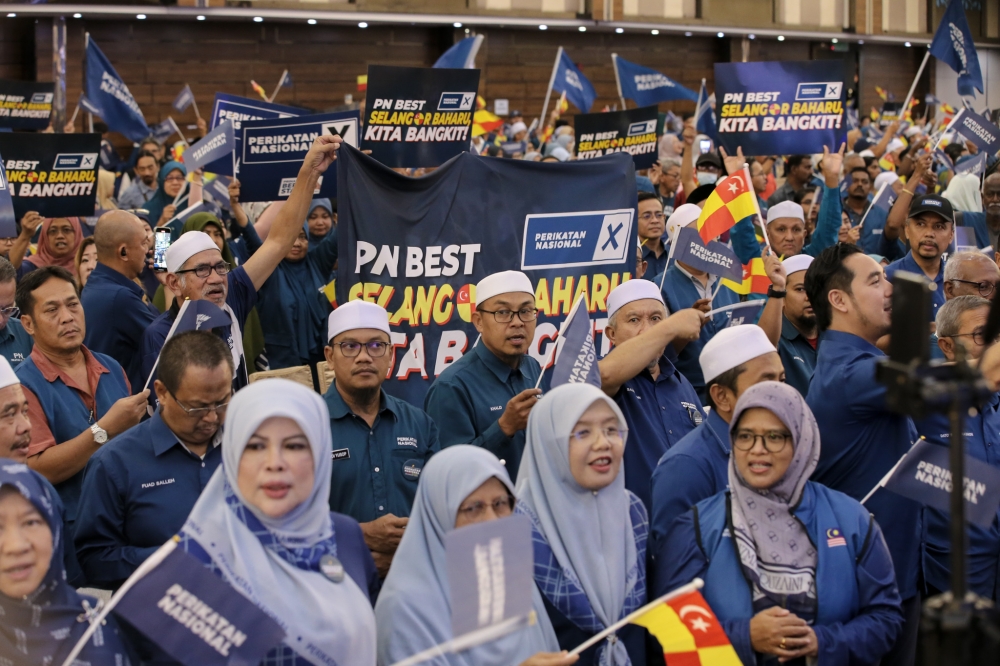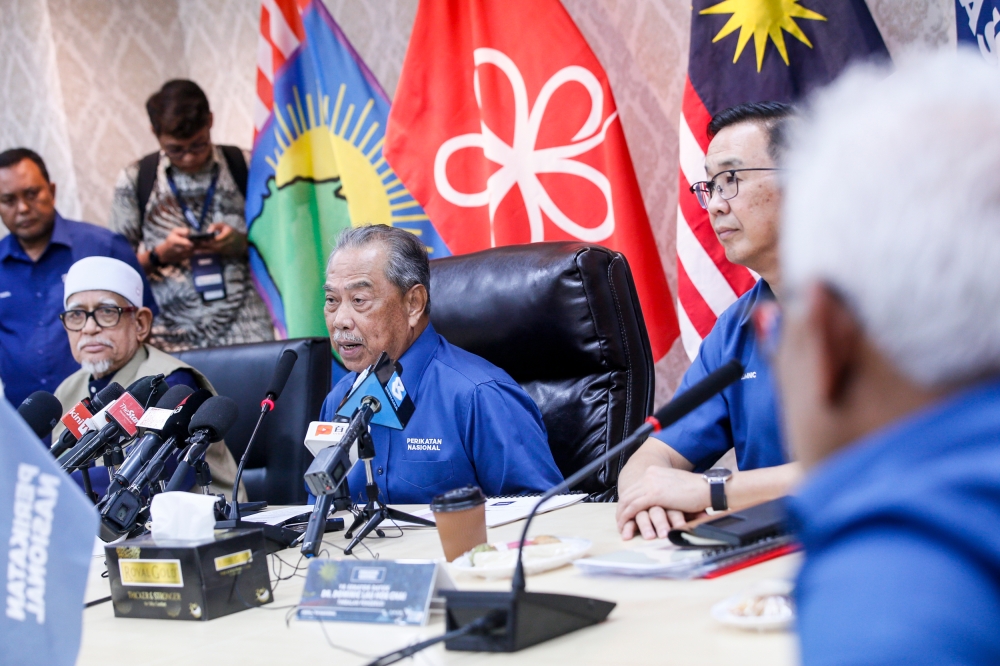KUALA LUMPUR, July 6 — Despite seeming like the strongest party in Perikatan Nasional (PN), several political analysts have dismissed that the Islamist party is undisputedly in the driver’s seat of the coalition.
The observers told Malay Mail that PAS still needs the support of Parti Pribumi Bersatu Malaysia if it wishes to form the federal and state governments, explaining that it only has the support of Malay voters and does not appeal much among non-Muslims.
“Just a simple observation [why PAS is contesting more seats than Bersatu], it is because most of the seats they will contest are in Terengganu, Kelantan and Kedah.
“There are about 85 to 86 seats that they will contest and most seats are incumbent seats. So for that reason, they have more seats than Bersatu,” Nusantara Academy for Strategic Research senior fellow Azmi Hassan told Malay Mail when contacted.
He said that is the reason why PAS has more seats than Bersatu after the 15th general election.
However, Azmi said PAS’ problem is that its support is mostly coming from Malay voters, and therefore cannot survive or form a government just based on this support.
On the contrary, he said Bersatu has more support from non-Muslims, and to gain this support PAS is more than willing to play second fiddle to Bersatu.
“That’s what’s happening in Selangor and Negeri Sembilan when Tan Sri Muhyiddin Yassin said that the menteri besar must come from Bersatu, not from PAS,” he said.
“This in itself makes PAS really look like a second fiddle because if you look theoretically at PAS, they have more influence than Bersatu in these two particular states (Negeri Sembilan and Selangor) ... So yes PAS is playing second fiddle not by choice but because they understand that their support only comes from a particular group which is very difficult to expand especially on the west coasts states.”

In terms of seat numbers, Azmi said PAS still has the upper hand compared to Bersatu, especially in the upcoming state elections as Malay voters will play a crucial role.
“Whether you exclude Kedah, Kelantan or Terengganu, PAS has the upper hand in terms of seat numbers. Since Umno is very weak now, the traditional Umno supporters or voters, have a very interesting and attractive alternative to Umno which is PAS, not Bersatu.
“So even though the perception is that they are playing second fiddle, it is PAS’ strategy, not to highlight the strength of PAS, as PAS only has the influence of the Malay community which does not have a good perception if PN wants to form the federal government,” he said.
Agreeing with Azmi, Mohammad Tawfik Yaakub, senior lecturer at the University of Malaya’s Department of political science, public administration and development studies, said it is PAS’ political strategy to ensure that voters from various groups including those who are on the fence and youths do not hesitate to vote for PN in the coming six-state elections.
“Although PAS is the real power and core to PN (based on the seniority and machinery strength), it has assessed that they cannot compete alone in the election to lead the government in Putrajaya,” Mohammad said when contacted.
In addition, Mohammad said PH and Barisan Nasional (BN) are currently facing challenges even in Negeri Sembilan, based on current political developments.
“PH and BN have an advantage in Penang because there are many state seats in urban areas, especially on the island while on the mainland state seats are in semi-urban and rural locations. As for Negeri Sembilan, there will be fierce competition between BN and PN in rural state seats.
“Based on the recent assessment of voter support in rural areas, especially the Malays, they tend to choose alternative parties other than BN or Umno because they are still rejecting the cooperation with PH, the party leadership, and issues involving costs of living,” he said.
However, he said even if PN does win big in the coming state election, the change in the ruling party at the state level does not affect the position of the unity government.
“But it can influence the party at the federal level to re-evaluate political cooperation,” he said.
Weighing in, Syaza Shukri, assistant professor of political science at International Islamic University Malaysia said whether PAS is stronger than Bersatu does not really matter.
“There is no doubt that PAS is the biggest party in PN, it has better machinery and better grassroots support. Bersatu is just riding PAS’ popularity and support.
“But really it doesn’t matter. What matters is the logo that will be used,” Syaza told Malay Mail.

Echoing Azmi and Mohammad, she said PAS knows that it cannot sell its Islamist vision to the entire nation.
“So when it comes to PN’s nationwide image they have to tone down the Islamist image, and instead convince voters that PN is simply a conservative party with no intention to allegedly Islamise the country.
“I think they are watching closely if the ‘green wave’ is temporary or long-lasting. The expectation is that they would win state seats in parliamentary constituencies they won last year such as in Permatang Pauh.
“If they can’t sweep those seats then it would mean they cannot depend on the ‘green wave’ sentiment,” she said, adding that PAS will be looking to “test the waters” of its support in the six states.
Last month, Muhyiddin was forced to deny the claim that PAS seems to be the “big brother” in PN as it will be contesting in more than half of the 245 seats up for grabs in the coming six state elections.
The PN chairman however said it is a fact that PAS is an established party and it controls Kelantan, Terengganu and Kedah.






















